For Daniele Costa, being recruited as a nurse in Rio de Janeiro was a dream come true. Her friend Libia Bellusci recalls her ecstatic joy on getting the position – a step up from her ambulance worker job on the city’s outskirts.
“‘Come here, I’ll hug you,’” she said she recalls Costa telling her, even though social distancing was in place. “’I can’t stop myself.’” They’d queued for four hours for the interview, on a bright sunny day.
But the lucky break proved fatal. Costa caught coronavirus quickly and the last Bellusci saw of her was a Facebook video, describing her symptoms. Costa, 41, died alone, in a hospital four hours’ drive outside of town, the only place she could get an ICU bed, on April 27.

“In her last days she didn’t get what she’s given her whole life – love and a great assistance,” said Bellusci tearfully. “She was an amazing person, very animated.”
Bellusci is vice president of Rio State’s Nurses Union, advocating for a part of Brazil’s medical staff that’s been hit particularly hard. She herself has had coronavirus, but keeps the enduring lung symptoms of the disease a secret from her family, so as not to worry them. She was only tested courtesy of a privately funded program, and has since been cleared to go back to work, she said.
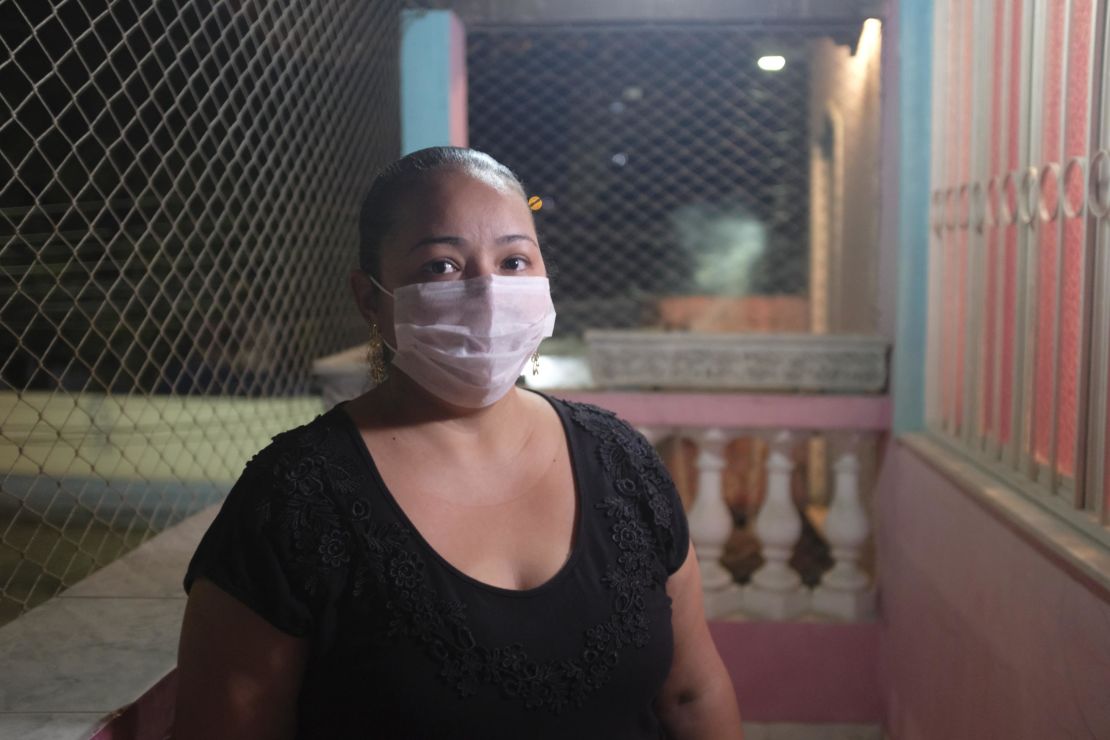
In Rio state, the pandemic has claimed the lives of 30 doctors and 40 nurses and medical staff, medical staff unions say, likely the worst toll in Brazil. Bellusci describes the healthcare issues in Rio – a city iconic and popular with tourists, but poor and criticized for its chaotic systems – as “very complex.”
“The units are full,” she said. “In others there are empty beds, but there aren’t enough ventilators. There’s also a shortage of health workers, because many got infected.”
“Worst is when, in the despair to assist everybody, we need to leave dead bodies to the side to try and save someone who’s arrived very ill in the Covid-19 red zone,” she said, adding they continue to prepare the bodies for the morgue once the new patient is stable. Bellusci said this problem had eased where she works, but her union had reports of it elsewhere.
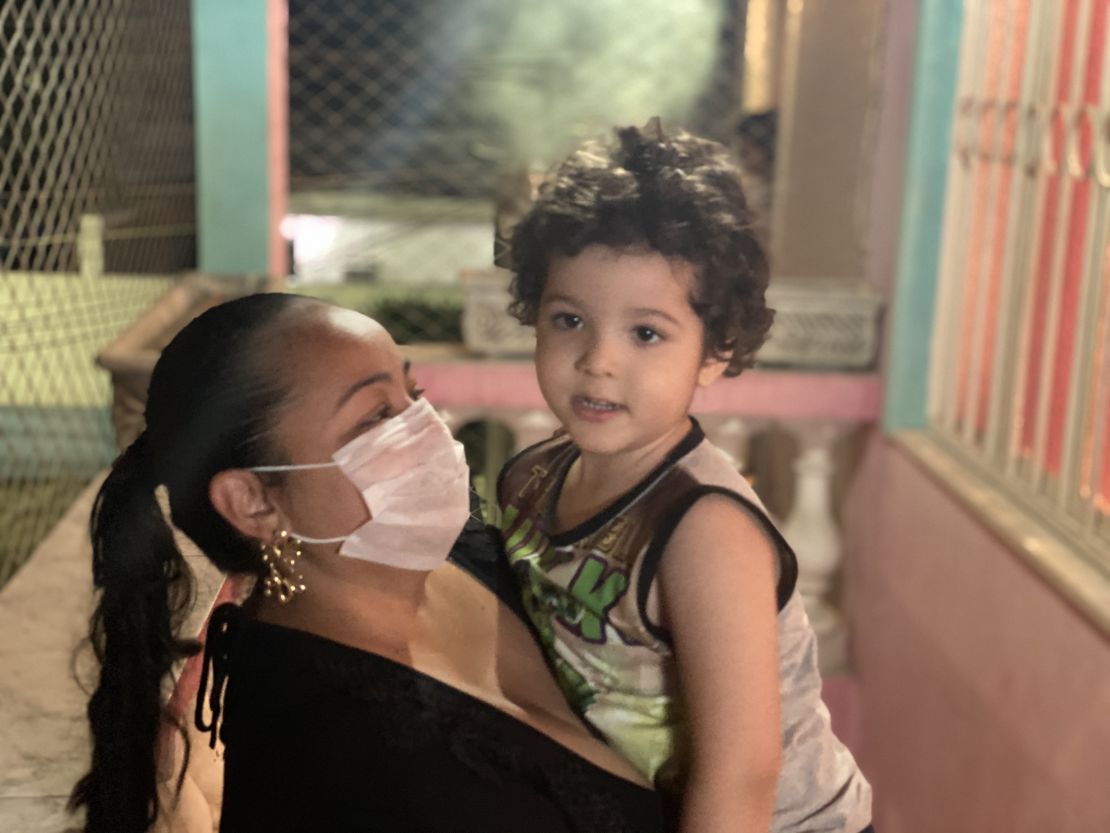
When she comes home, she takes off her clothes and PPE, and does all she can to protect her young son and mother. “They are putting sick people to die,” she said of the disregard for the safety of nurses who may have the virus. “The municipalities, state and federal government are throwing people to death. There’s no other explanation.”
Videos released by doctors from the worst moments of Rio’s crisis seem to support the claims. One shows nurses sleeping on the floor of a field hospital in mid-May, often sharing mattresses. Another, from May 5, still shows corpses wrapped in trash bin liners, on beds next to a living patient.
In pictures: The coronavirus is surging in Brazil
The local government has recently said hospital capacity has improved enough to permit an easing of the lockdown, although cases do continue to rise. In one of Rio’s better hospitals, the situation is much improved. CNN was shown around the Ronaldo Gazolla Municipal hospital, where 286 patients were being treated, 88 in the full ICU, staff said.
At that time, director Luis Fernando Gandara explained the hospital had about six to eight deaths a day, mostly in the ICU. That equates to a starting death rate of up to 10% of the ICU patients every day. Out the back of the hospital, three white freezer containers stand in a row, able to hold 75 bodies at a time, until they can be claimed and buried.
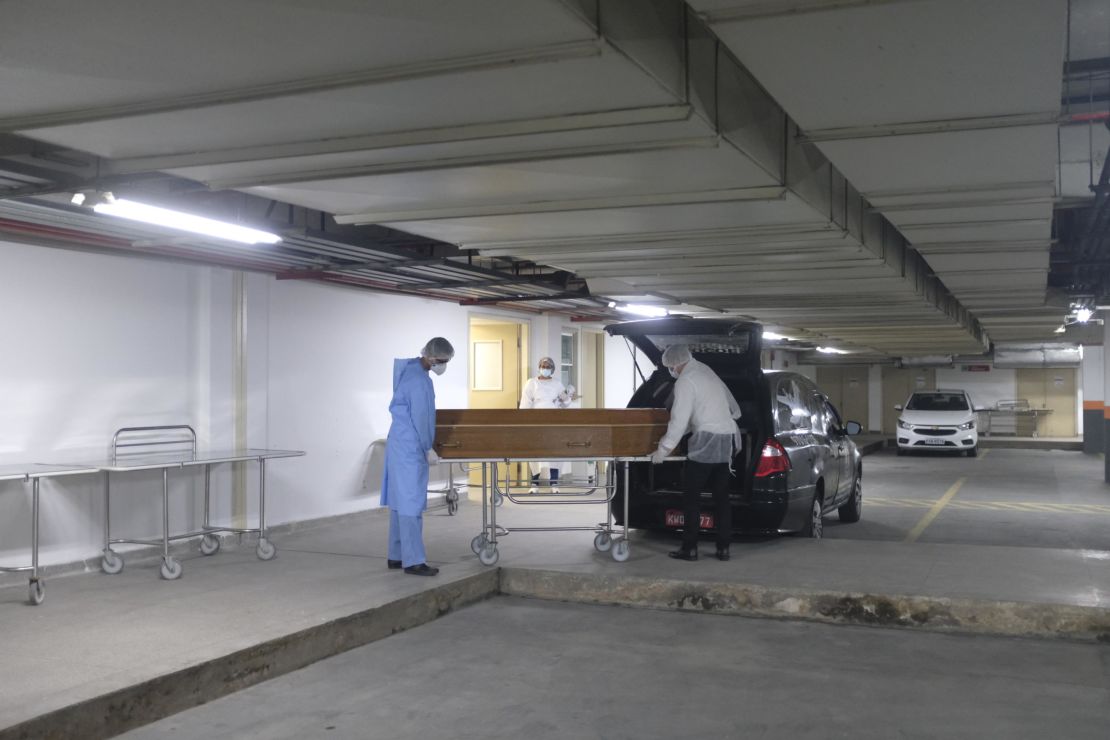
“It’s a level of lethality that nobody, no team, was prepared for,” Gandara said. The challenge now is personnel. “We need more doctors to work with Covid, and also some medications that are short in the market.”
He told CNN that his hospital had no shortage of PPE, a statement borne out by what we saw. The Rio governor declined requests for an interview on the topic. A statement from the Rio State health secretary said they had purchased millions of items of PPE and staff were trained in the proper use.
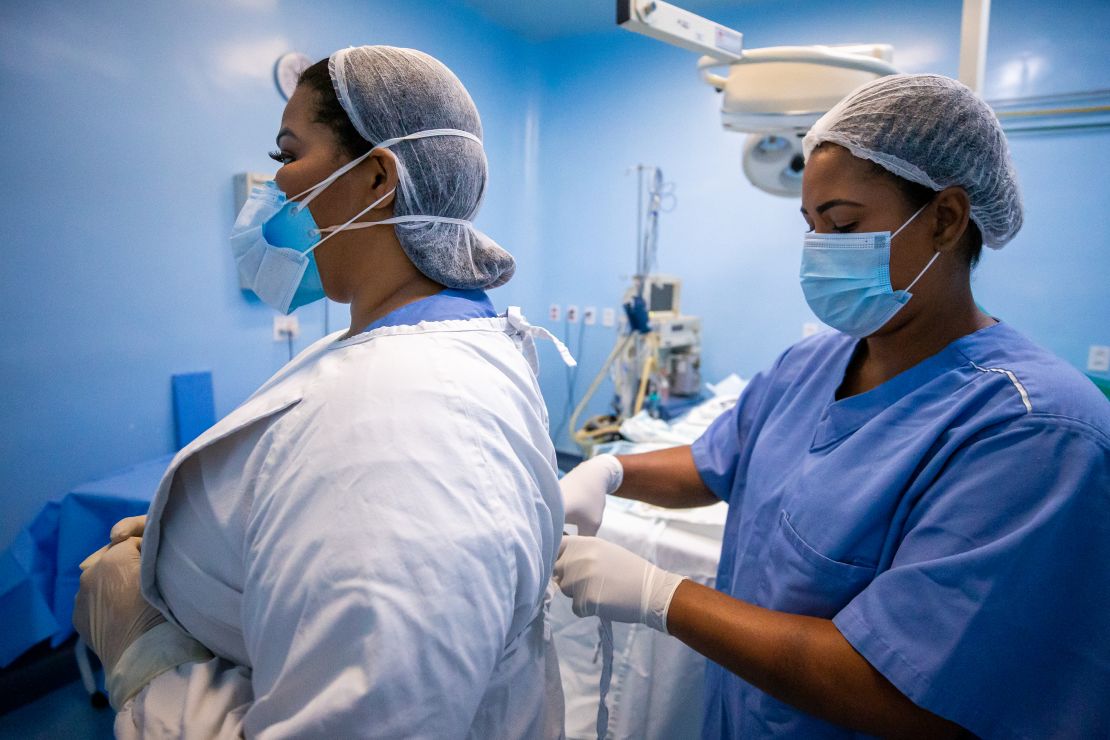
Yet the shortages and death rate among patients and nurses is causing even the most committed doctors to quit. Pedro Archer is an ICU doctor in state-funded medicine, who said he is withdrawing from the Covid-19 “red zones” for his own health. Pale and with a light sweat on his forehead, he met us after a long shift.
“Last Wednesday, when I started my shift there were already no ventilators available and at 9 a.m. – just two hours in – a patient died because there wasn’t a ventilator,” he said. Hours later, an elderly man arrived with comorbidities. The team made the agonizing choice to give a spare ventilator not to him, but to another younger patient who would more likely survive. “You spend the whole night super stressed,” he said. “Many doctors are leaving and resigning because the work conditions are very precarious.”
Archer is a director in the doctor’s union in Rio, where he said a doctor has died every other day.
“In public sector they use the same PPE all day,” he said, adding that in private hospitals they change for every patient. “Here in Brazil if you have health insurance, you have much higher chances of surviving.”
Archer said some of the large field hospitals built in Rio have reduced the pressure, but colleagues are still resigning. “It’s draining, physically and emotionally. In the first difficult week of the pandemic, I’ve started my shift at 7 p.m. and I’ve lost a patient in the first hour.”
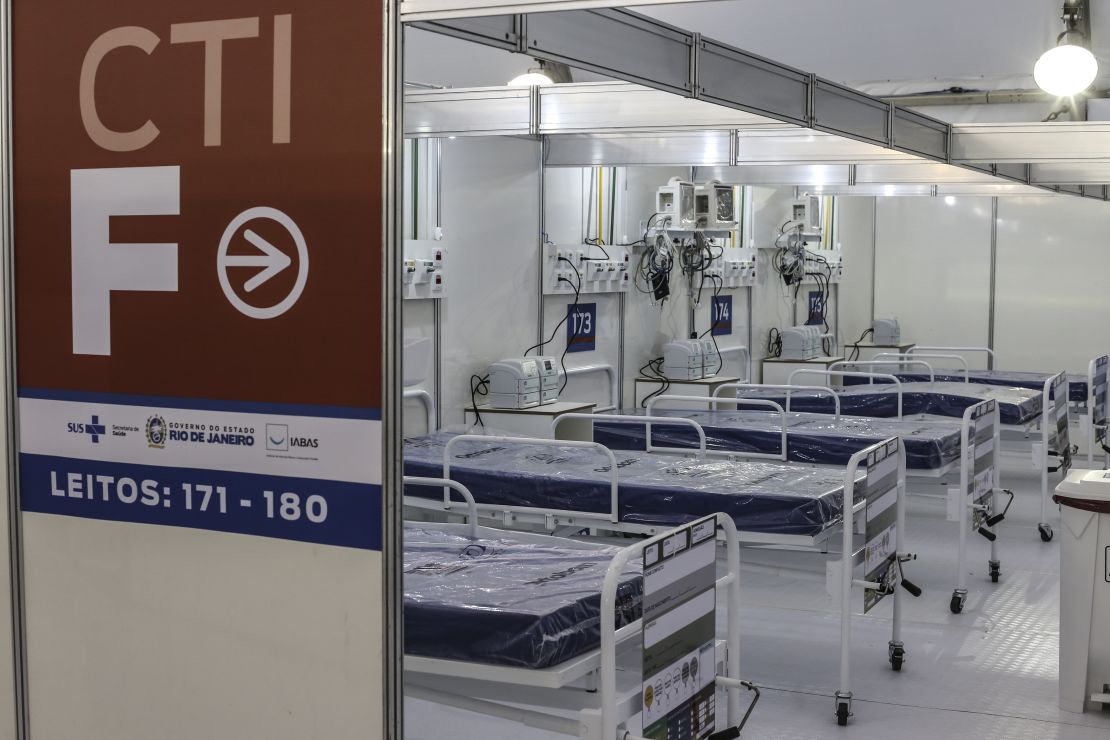
Archer blames a lack of leadership. Brazil’s President Jair Bolsonaro dismissed the virus as a “little flu” and called lockdown measures against it a “terrible disgrace.”
“It’s hard to face the worst health crisis in the country with a president who doesn’t see the reality, or have the maturity to deal with the crisis. A president that fires two health ministers because he didn’t agree with their medical opinions. We feel very undervalued, all of us who are in the front, fighting and seeing people dying every day.”










































